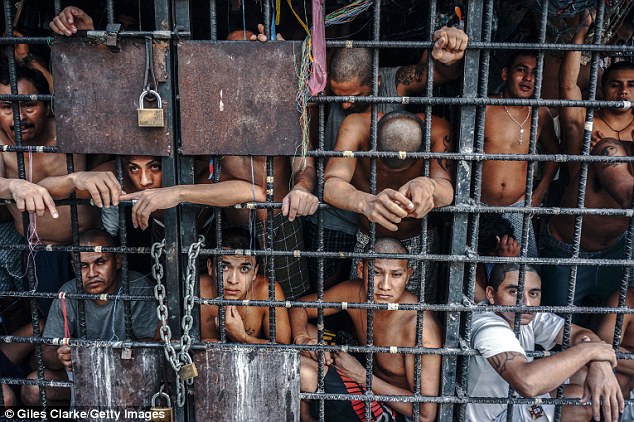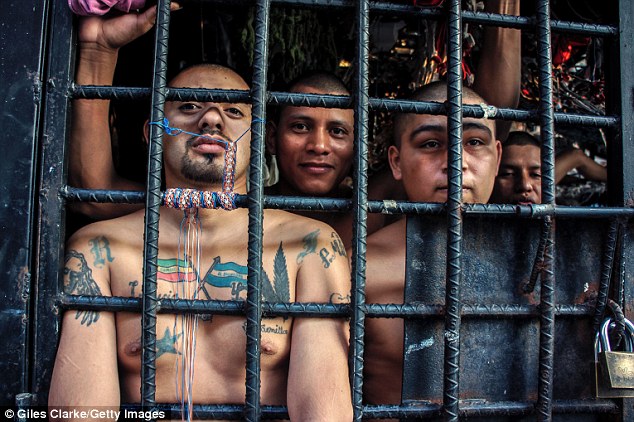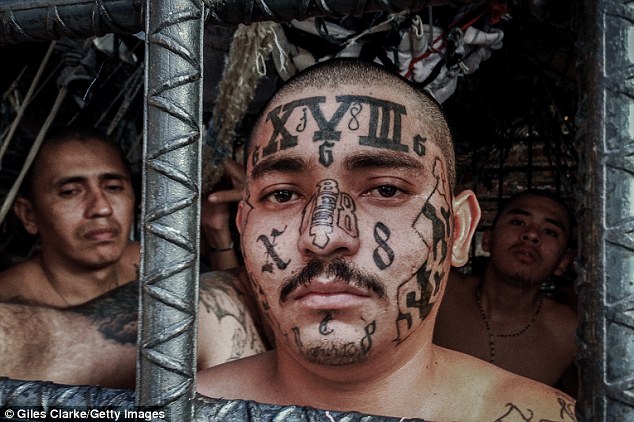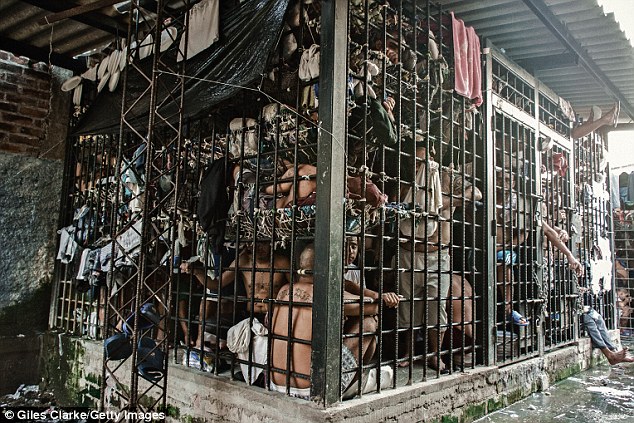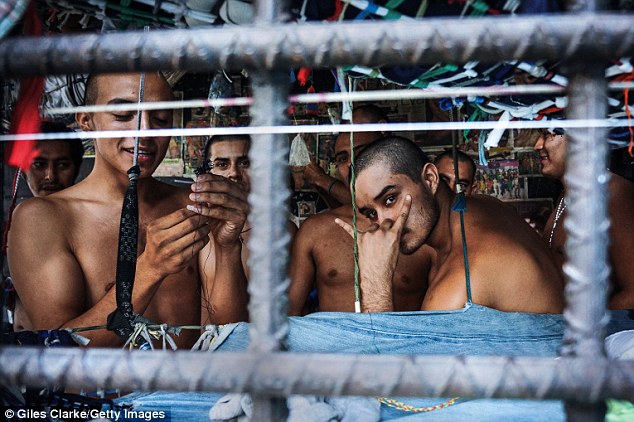- New report reveals the shocking conditions that members of El Salvador’s violent and bloody MS-13 and M18 gangs are forced to live in
- Huddled in holding cells designed for 72-hour stays – some men have been exposed to unsanitary and diseased conditions for over a year
- An uneasy truce has existed since March 2012 between the two gangs
James Nye
Daily Mail
September 1, 2013
Huddled together like cattle in a cage no bigger than a shed some of the men of El Salvador’s prison pits have languished in these rancid, disease ridden holding cells for more than a year.
Designed only for temporary 72-hour stays, the sweltering cells, each 12 feet wide and 15 feet tall are crammed with more than 30 people – all veterans of the country’s vicious war between the MS-13 and M18 gangs.
Segregated along tribal gang-lines, the men in these inhumane cells are hidden from public view, but one reporter from counter-culture magazine VICE, managed to gain access to throw light on the grizzly conditions they are consigned to spend their days living in.
Shown the prison pits by a police officer in El Salvador disgusted with the prisoners treatment, the VICE reporter noted that the men suffered frequent health problems and weren’t even fed enough.
Hoping that the pictures taken will pressure the government into improving their life while incarcerated, the images portray the fallout from El Salvador’s fragile truce following decades of near civil-war between the two powerful gangs.
Even in July, El Salvador witnessed a burst of violence that caused observers of the year long truce between the two gangs to fret that it might be crumbling.
The uptick in murders in the Central American nation echoes killing rates before the March 2012 truce between the Mara Salvatrucha (MS-13) gang and rival Barrio 18.
‘We said last year that the truce was fragile and that it could fracture in any moment. Time has proven us right,’ Miguel Fortin, Director of the Supreme Court’s Institute of Legal Medicine (IML) told local media.
The truce, which is backed by the Catholic Church and the Organization of American States (OAS), aimed to reducing homicide rates of 66 per 100,000 inhabitants in 2011, according to the United Nations, making El Salvador the world’s most violent nation.
The unprecedented truce helped bring murders down to an average of five per day from 12 before the agreement. But killings have been rising since late May, with murders averaging 16 per day in early July.
In March 2012, the nation witnessed the historic truce between the two rival gangs that was designed to curb the nation’s daunting homicide rate.
The MS-13 and its rival, Barrio 18, vowed to end the killings and the forced recruitments in exchange for better conditions for incarcerated gang leaders, who run their operations from behind bars.
The government transferred 30 bosses of each gang from the maximum security Zacatecoluca prison, nicknamed ‘Zacatraz,’ to ordinary jails, where they would impart orders to their minions on the street, purportedly to stick with the truce.
The gangs, which also operate in Guatemala and Honduras, are seeking truce talks in those countries as well.
But Carlos Ponce, an expert on crime for the Salvadoran Attorney General’s Office, believes the truce is a sham.
 Daily Stormer The Most Censored Publication in History
Daily Stormer The Most Censored Publication in History
